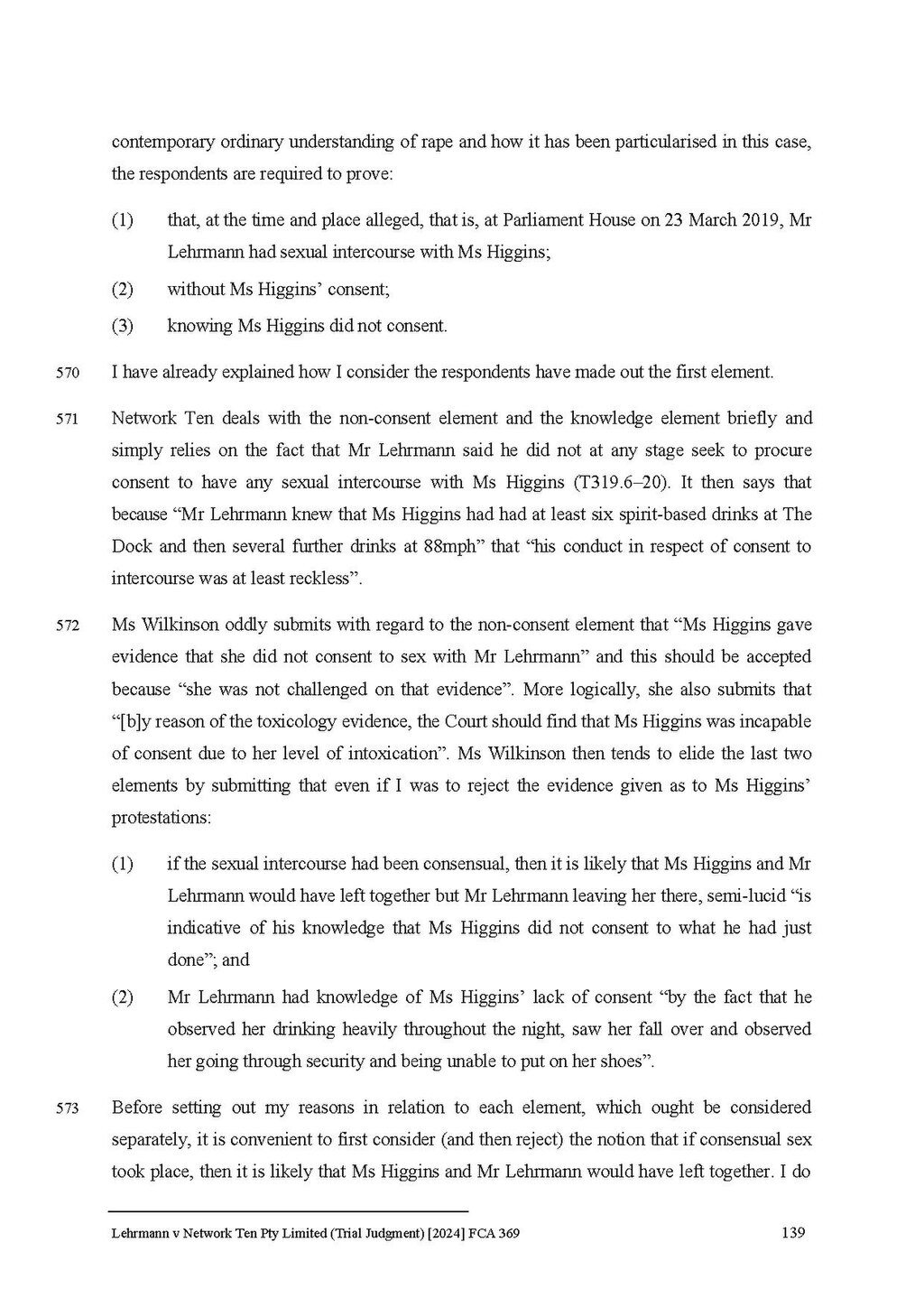contemporary ordinary understanding of rape and how it has been particularised in this case, the respondents are required to prove:
- (1) that, at the time and place alleged, that is, at Parliament House on 23 March 2019, Mr Lehrmann had sexual intercourse with Ms Higgins;
- (2) without Ms Higgins' consent;
- (3) knowing Ms Higgins did not consent.
570 I have already explained how I consider the respondents have made out the first element.
571 Network Ten deals with the non-consent element and the knowledge element briefly and simply relies on the fact that Mr Lehrmann said he did not at any stage seek to procure consent to have any sexual intercourse with Ms Higgins (T319.6–20). It then says that because "Mr Lehrmann knew that Ms Higgins had had at least six spirit-based drinks at The Dock and then several further drinks at 88mph" that "his conduct in respect of consent to intercourse was at least reckless".
572 Ms Wilkinson oddly submits with regard to the non-consent element that "Ms Higgins gave evidence that she did not consent to sex with Mr Lehrmann" and this should be accepted because "she was not challenged on that evidence". More logically, she also submits that "[b]y reason of the toxicology evidence, the Court should find that Ms Higgins was incapable of consent due to her level of intoxication". Ms Wilkinson then tends to elide the last two elements by submitting that even if I was to reject the evidence given as to Ms Higgins' protestations:
- (1) if the sexual intercourse had been consensual, then it is likely that Ms Higgins and Mr Lehrmann would have left together but Mr Lehrmann leaving her there, semi-lucid "is indicative of his knowledge that Ms Higgins did not consent to what he had just done"; and
- (2) Mr Lehrmann had knowledge of Ms Higgins' lack of consent "by the fact that he observed her drinking heavily throughout the night, saw her fall over and observed her going through security and being unable to put on her shoes".
573 Before setting out my reasons in relation to each element, which ought be considered separately, it is convenient to first consider (and then reject) the notion that if consensual sex took place, then it is likely that Ms Higgins and Mr Lehrmann would have left together. I do
